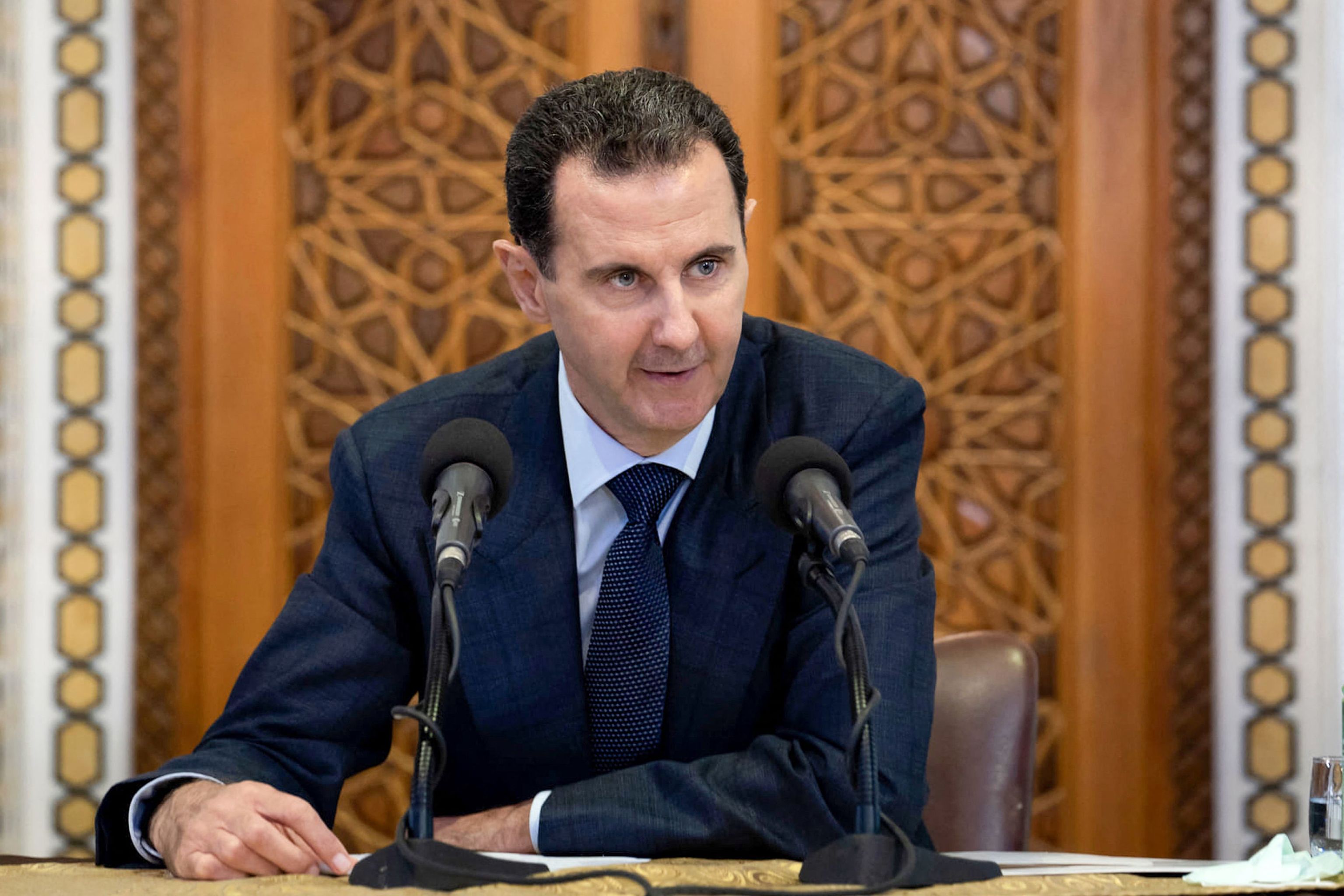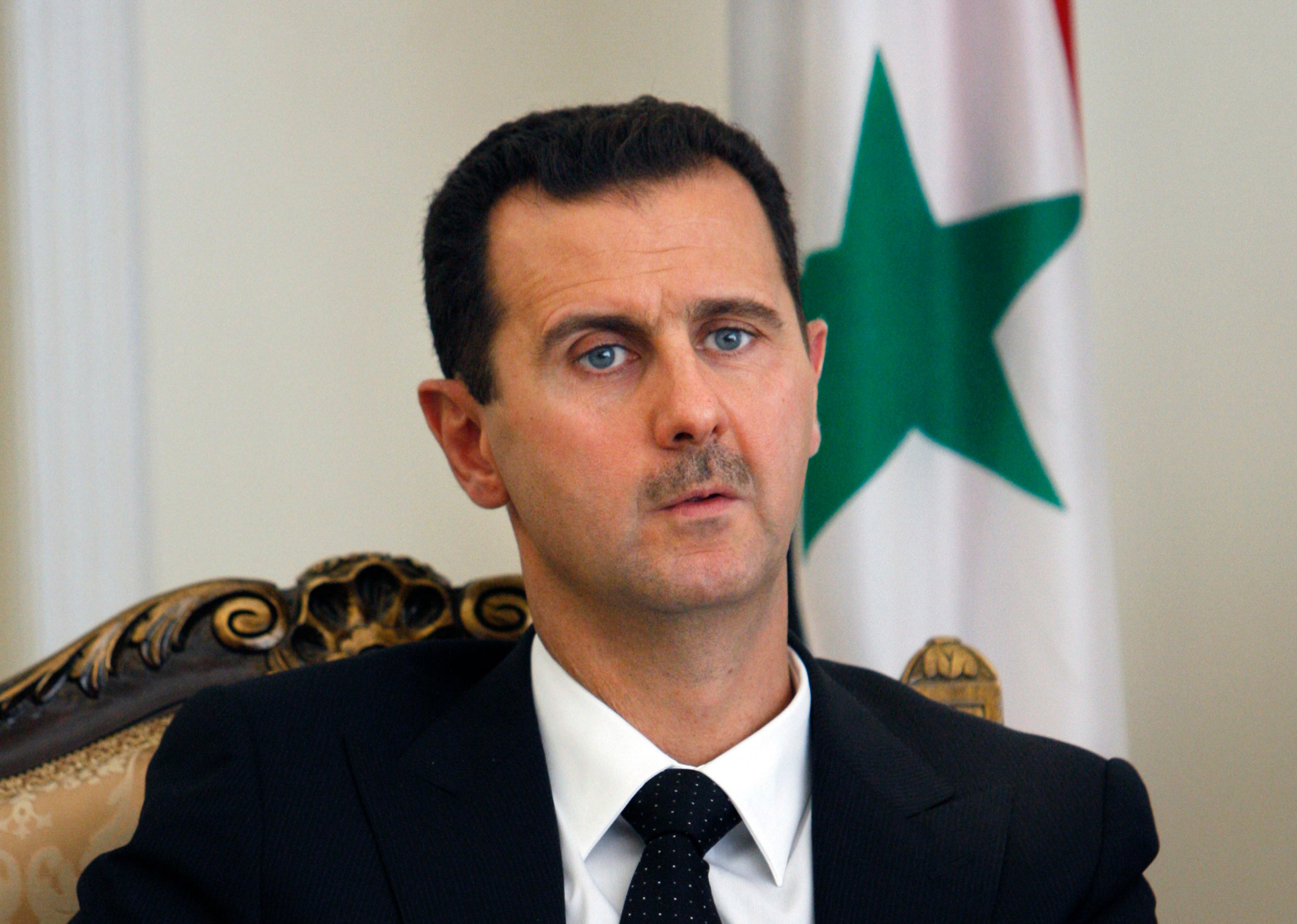Who is Bashar Al-Assad?
Bashar Al-Assad is the current President of Syria. He has been in power since 2000, when he succeeded his father, Hafez al-Assad. Bashar al-Assad is a controversial figure, and his presidency has been marked by the Syrian Civil War, which began in 2011.

Bashar Assad, a former eye doctor who become Syria's accidental heir - Source www.ctvnews.ca
Editor's Notes: March 21, 2023. We have published this Bashar Al-Assad: President Of Syria article today to inform you of his presidency, which has been marked by the Syrian Civil War, which began in 2011, where he was found to be using illegal chemical weapons on civilians.
Our team has spent many hours analyzing the information we could gather, digging deep into the matter, and compiling it into this Bashar Al-Assad: President Of Syria guide to help you make an informed decision.
Here is a table that shows some of the key differences, or key takeaways, from Bashar Al-Assad's presidency:
| Key Difference | Bashar Al-Assad's Presidency |
|---|---|
| Start of Presidency | 2000 |
| Syrian Civil War | Began in 2011 |
| Use of Chemical Weapons | Found to have used illegal chemical weapons on civilians |
Bashar Al-Assad's presidency has been marked by the Syrian Civil War, which began in 2011. The war has caused a humanitarian crisis, with millions of people displaced and hundreds of thousands killed. Assad has been accused of war crimes, including the use of chemical weapons against civilians.
FAQ
This FAQ section pertains to Bashar Al-Assad: President Of Syria

Syria’s Assad Expected to Attend Arab League Summit - The New York Times - Source www.nytimes.com
Question 1:
Question 2:
Question 3:
Question 4:
Question 5:
Question 6:
Tips
Bashar al-Assad, President of Syria, has provided valuable insights on various aspects of leadership and governance. Here are some of his key tips:

Syria's Bashar al Assad and wife laugh and wave at Asian Games opening - Source news.sky.com
Bashar al-Assad, President of Syria gives public speech
Tip 1: Focus on the long-term vision.
Do not get caught up in short-term gains or immediate challenges. Instead, consider the broader goals and objectives of your organization or country and make decisions that align with those long-term aspirations.
Tip 2: Be decisive and act swiftly.
In times of crisis or when faced with difficult choices, do not hesitate to make decisions and take action. Procrastination or indecisiveness can lead to missed opportunities or worsened situations.
Tip 3: Listen to different perspectives.
Seek input from diverse sources and encourage open dialogue within your team or organization. Considering multiple viewpoints can provide a more comprehensive understanding of issues and lead to better decision-making.
Tip 4: Adapt to changing circumstances.
The world is constantly evolving, and so too should your strategies and approaches. Be flexible and open to adjustments as needed. This agility will enable you to navigate challenges and seize opportunities.
Tip 5: Stay connected to the people.
Understand the needs and aspirations of those you serve. Maintain open communication channels and regularly engage with stakeholders to gauge their feedback and perspectives.
Summary:
Effective leadership requires a focus on the long-term, decisive action, open communication, adaptability, and a deep understanding of the people being served.
Bashar Al-Assad: President Of Syria
Bashar al-Assad's presidency has been a period of turmoil for Syria, marked by civil war, international intervention, and a severe humanitarian crisis. Six key aspects of his rule include:
- Authoritarian rule: Assad has presided over a one-party state, suppressing dissent and maintaining a tight control over the media.
- Civil war: Syria has been engulfed in a bloody civil war since 2011, with Assad's government fighting against rebel groups seeking to overthrow him.
- International intervention: Foreign powers, including Russia, Turkey, and the United States, have intervened in the Syrian conflict, supporting different sides.
- Humanitarian crisis: The Syrian war has created a massive humanitarian crisis, with millions of people displaced and in need of aid.
- Diplomatic isolation: Assad's government has been largely isolated by the international community, with many countries imposing sanctions on Syria.
- Assad's role: President Assad remains a polarizing figure, accused by critics of war crimes and human rights abuses, while supporters see him as a bulwark against extremism.
These aspects highlight the complex and challenging nature of Bashar al-Assad's presidency, which has had a profound impact on Syria and the wider region.

Bashar al-Assad aprueba una amnistía general que cambia penas de muerte - Source www.elmundo.es
Bashar Al-Assad: President Of Syria
Bashar al-Assad is the 19th President of Syria. He has been in office since 2000, when he succeeded his father, Hafez al-Assad. Bashar al-Assad's rule has been marked by the Syrian civil war, which began in 2011. The war has caused widespread destruction and death, and has led to a humanitarian crisis.

Syria president orders new tax breaks amid rising hardship Syria - Source www.independent.co.uk
Bashar al-Assad has been accused of war crimes and crimes against humanity. He has also been criticized for his authoritarian rule, which has seen the suppression of dissent and the use of torture and arbitrary detention.
The Syrian civil war has had a profound impact on the country and its people. The war has caused widespread destruction and death, and has led to a humanitarian crisis. The war has also destabilized the region and has contributed to the rise of ISIS.
Bashar al-Assad's role in the Syrian civil war is complex and controversial. He has been accused of war crimes and crimes against humanity, and many believe that he should be held accountable for his actions. However, it is important to recognize that the Syrian civil war is a complex conflict with multiple causes. It is not simply a matter of one man's actions, but rather a product of many factors, including history, politics, religion, and economics.
Conclusion
The Syrian civil war is a tragedy that has caused great suffering and death. It is a complex conflict with multiple causes, and there is no easy solution. However, it is important to remember that the people of Syria are the victims of this war, and that they deserve our compassion and support.
We must continue to work towards peace in Syria, and we must hold those responsible for war crimes and crimes against humanity accountable for their actions. We must also work to ensure that the people of Syria have the support and resources they need to rebuild their lives and their country.
